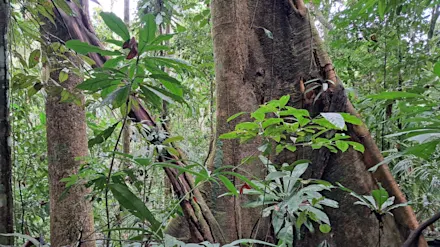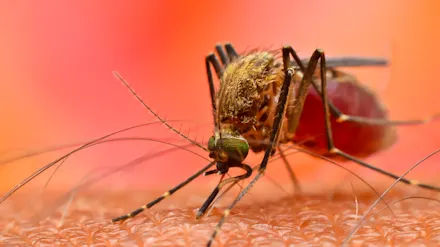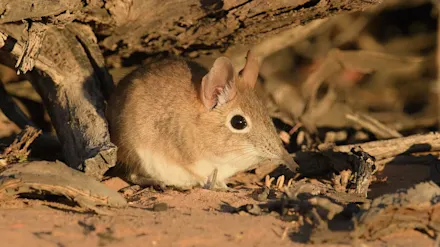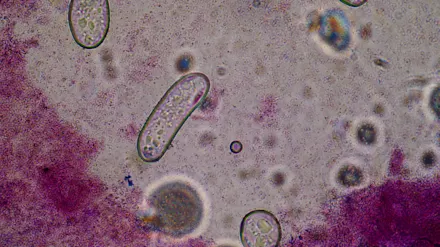
Life sciences
96% accurate footprint tracker for tiny mammals could help reveal ecosystem health
New footprint identification technology can identify ecosystem-critical species which were once only distinguishable by DNA.


Life sciences
New footprint identification technology can identify ecosystem-critical species which were once only distinguishable by DNA.

Life sciences
Current regulations in the Peruvian Amazon prioritize large trees for timber harvesting. But a new study has now shown that most carbon is stored in trees with a diameter at breast height of at least 41cm, depending on species. The authors concluded that a review of forest policy is essential to protect these trees if progress towards net-zero emissions is to be made.

Featured news
Scientists found that some mosquitoes really are targeting humans more than other food sources, but it could be a matter of convenience as biodiversity dwindles and other food sources are displaced

Life sciences
Groundbreaking DNA analysis of Alaskan beluga whales shows both males and females have many different mates.




Health
Guest editorial by Ric Treble and Caroline Copeland, authors of a new Frontiers in Pharmacology article that examined the impact of national and international legislation on the emergence of new psychoactive substances in England, Wales and Northern Ireland.

Health
Researchers found exceptionally high levels of trauma among survivors of a notorious atrocity: the 1988 chemical attack on Halabja in Kurdistan.

Health
A major review in Frontiers in Science highlights how tackling unsustainable food systems—reflected by our changing food environment—is urgent for both health and climate.

Health
Professional female football players aren’t more likely to injure themselves during menstruation, but injuries that are sustained could be more disruptive, causing three times more days off the field

Neuroscience
Dr Maria Santacà describes how not only how fish and birds perceive their worlds, but also how ecological pressures shape the evolution of perception.

Neuroscience
Scientists find that words you’ve been told to recall are better remembered than words with negative emotional connotations — but surprisingly, sleeping doesn’t help.

Neuroscience
Listening to joyful music helped study participants with motion sickness recover better than other participants — while sad music helped less than doing nothing.

Neuroscience
In well-designed gardens, our gaze shifts quicker and more often. Researchers believe this could be key to understanding the relaxing effects gardens can have on viewers.

Environment
New footprint identification technology can identify ecosystem-critical species which were once only distinguishable by DNA.

Environment
Groundbreaking DNA analysis of Alaskan beluga whales shows both males and females have many different mates.

Environment
Scientists studying the devastating Lāhainā, Maui fires of August 2023 found that deaths were two-thirds higher than expected that month — and 367% higher during the most intense week of the blaze.

Environment
Stable isotope analysis can tell apart ivory from mammoths dug up from the permafrost and modern elephants, closing a loophole for selling elephant ivory

Psychology
With less than one month before the holidays, many of us are gearing up for the annual Christmas shopping extravaganza. We’re highlighting five articles you won’t want to miss before hitting the shops.

Psychology
Scientists find that people mostly avoid social media ads when they see them, but many ads blend in seamlessly.

Psychology
Physiological rhythms could explain why Italian university students were more likely to fail exams early or late in the day.

Psychology
Study participants asked to choose whether to empathize with or describe people preferred to empathize with groups, despite finding it difficult and distressing.

Space sciences and astronomy
Guest editorial by Prof Heidi Newberg, an astrophysicist at Rensselaer Polytechnic Institute and author of a new Frontiers in Astronomy and Space Sciences article

Space sciences and astronomy
Scientists successfully identify microbe fossils in terrestrial rocks like those found on Mars, opening up the possibility of searching for fossils on the Red Planet.

Space sciences and astronomy
Scientists explored microbial movement as a possible biosignature to detect life on Mars and beyond, cheaper and faster than ever before.

Space sciences and astronomy
Space belongs to no-one, yet many nations and private entities now plan to lay their claim on its resources. In a recent Frontiers in Space Technologies article, Nishith Mishra, Martina Elia Vitoloni and Dr Joseph Pelton shared their thoughts about how plans to exploit the ocean floors could impact the way resources from space are used and managed.
Get the latest research updates, subscribe to our newsletter